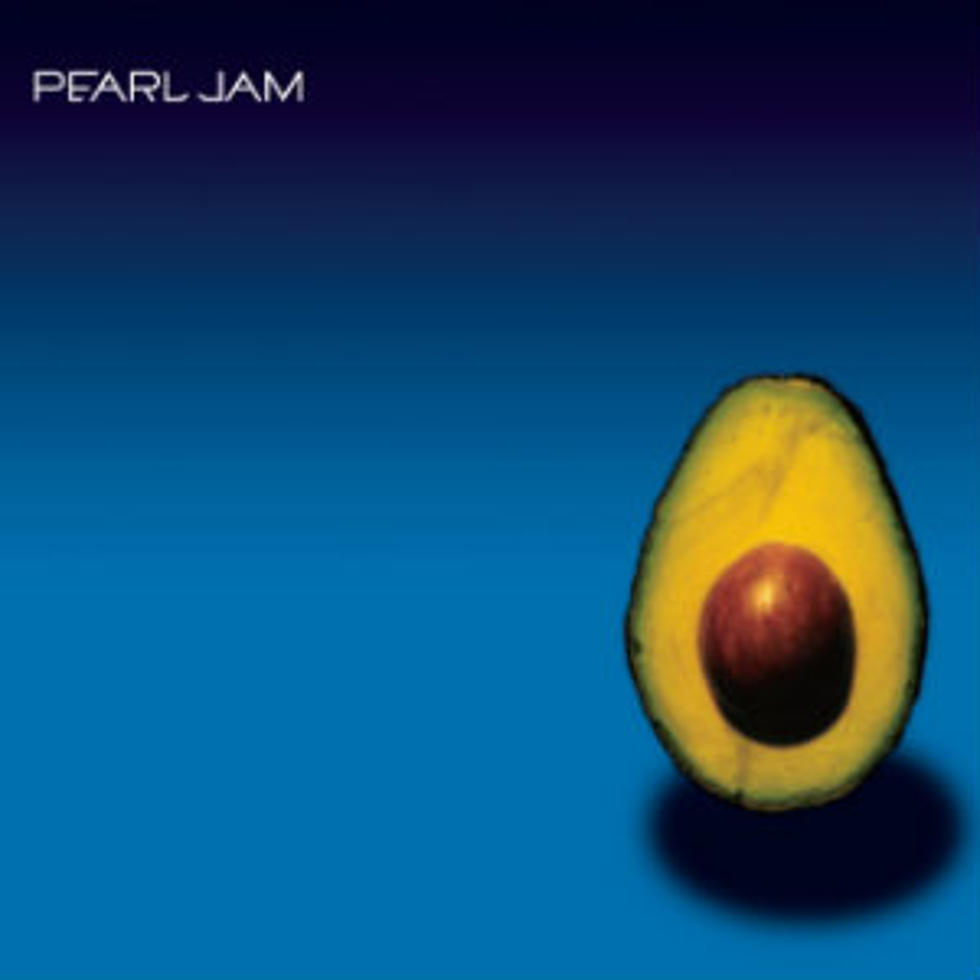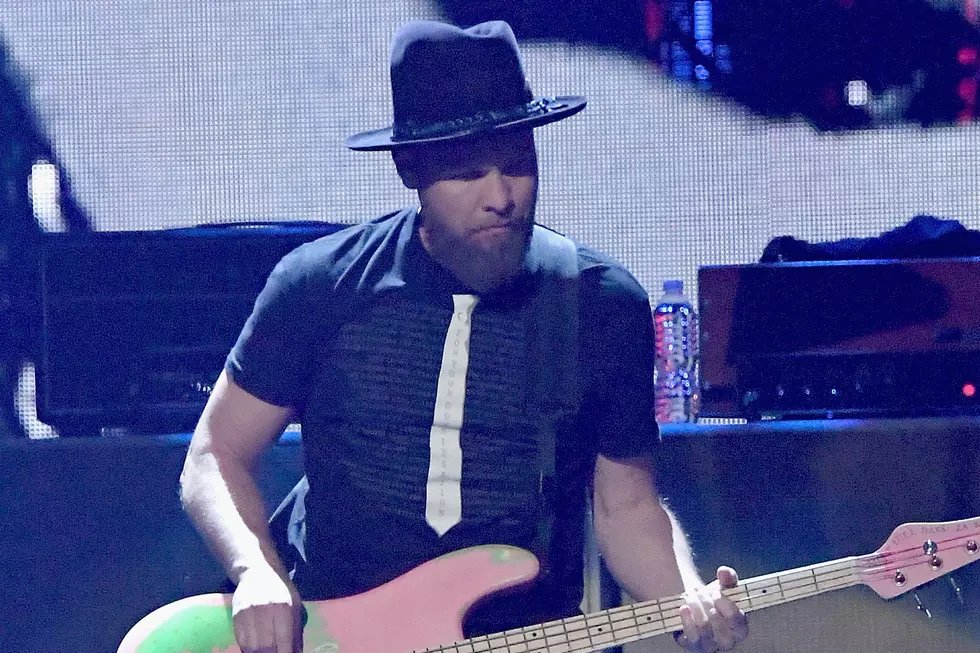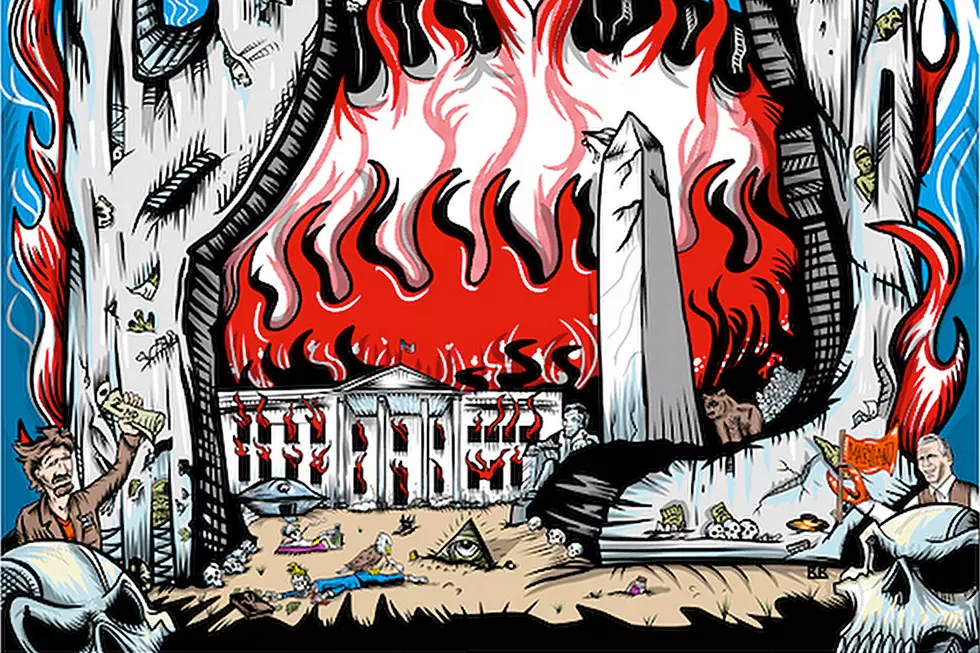
10 Years Ago: Pearl Jam Redirect Their Rage With Their Self-Titled Album
After a string of experimental and largely self-indulgent releases, it took the boiling tension of the George W. Bush years to finally push Pearl Jam back toward their harder-edged roots. After a four-year absence, Eddie Vedder and the increasingly political band reemerged in 2006 with a self-titled album that barely restrained their bubbling vitriol. Pearl Jam sounded downright pissed.
Released a decade ago today, the eighth full-length from the band featured a raw and organic version of Pearl Jam that hadn’t been heard in years. Along with a bombastic, punk-fueled musical aesthetic, the album is also punctuated by meticulously crafted lyrics. Instead of focusing the bulk of his attention on introspection, Vedder lashes outwardly (often through fictional characters) against the rampant sociopolitical themes of the time: the war in Iraq, the war on terror and domestic poverty.
The album begins with the energetic blast of “Life Wasted” with lyrics Vedder penned after the funeral of Johnny Ramone, who Vedder once described to Rolling Stone as “the best friend I ever had on the planet." Vedder said that Ramone’s death in September 2004 (about a month before Pearl Jam started recording for the album) actually inspired half the record. The personal revelations that Vedder shares in the lyrics touch upon the fragility of existence and the importance of living a life that matters.
Then there’s the second track on Pearl Jam and the first single, “World Wide Suicide.” Despite being uptempo and radio accessible, it's laced with dark lyrical content in which Vedder disapproves of the Iraq War. He chides, “Medals on a wooden mantle / Next to a handsome face / That the president took for granted / Writing checks that others pay.”
Vedder’s angst with religion is relayed in a similarly palatable fashion on “Marker in the Sand." He sings, “Now you got both sides claiming killing in God’s name / But God is nowhere to be found conveniently” over punchy rhythm guitars before the song shifts into a sweeping, majestic chorus that’s too catchy to ignore. The song is one of the record’s many triumphs, balancing the band’s classic ’70s-rock sensibility with a contemporary anti-establishment ethos in a way that still makes you want to sing along.
It’s important to note that the topical drama of the album's lyrics also carry over into tracks with a focus more personal than political. For example, Vedder paints an abstract tale of alcoholism over the hyperkinetic rhythm and blistering guitars of “Severed Hand,” while bemoaning the struggles of the poor during the midtempo churn of “Unemployable.” The only consistency, it seems, is in the auditory urgency of each track’s individual message.
That’s not to say the album doesn’t have moments of softer beauty, too. Most notably, “Parachutes” is easily one of the band’s most captivating low-volume numbers, with a haunting melody that recalls John Lennon and Roy Orbison, while Vedder contemplates love and mortality. Likely also influenced by Ramone’s passing, Vedder projects his own death with a striking sense of peace, telling his lover, “Please know that I got / All the feelings I'm needing / Before my light goes out.”
Sonically, the album sparkles, too, giving the feeling that the listener is standing in the same room with the band, thanks in part to Adam Kasper’s crisp production and the re-energized performances of Pearl Jam’s members. The ever-bombastic drumming of Matt Cameron (also of Soundgarden) especially shines, as does the lead guitar work of Mike McCready, who was afforded more space to rip than on some of the band’s previous outings. He makes full use of the opportunity, channeling his inner Jimi Hendrix and Jimmy Page into a slew of bluesy, overdriven licks.
Commercially, the album was largely heralded a success, reaching No. 2 on the Billboard 200 and selling 279,564 copies in its first week. Rolling Stone's David Fricke called it the Pearl Jam's best album in 10 years, noting that “it’s the most overtly partisan – and hopeful – record of their lives.”
That hope has carried the band onward ever since. After the reinvigorating success of Pearl Jam, the group went on to record 2009's Backspacer, which was heavily influenced by pop and New Wave while showcasing a more casual side to Vedder’s lyrics. But without the change in direction on their 2006 album, Backspacer may have been a very different album.
If there’s a lesson to be learned from the album, perhaps it’s this: Before you can be happy, you first need to be a little angry. As Zack de la Rocha famously shouted in "Freedom," from Rage Against the Machine’s debut, anger is indeed a gift.
Worst to First: Every Pearl Jam Album Ranked
More From Diffuser.fm









